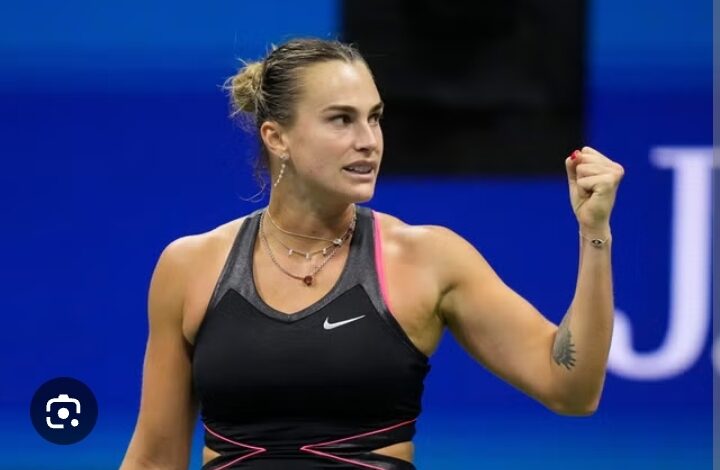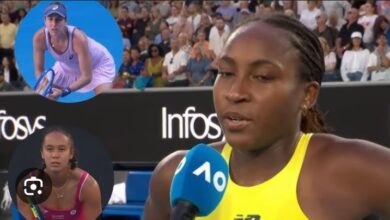“She’s not chasing trophies — she’s chasing…”: Aryna Sabalenka’s coach reveals what Aryna is chasing- Not trophy

Aryna Sabalenka’s coach, Jason Stacy, spoke about the secrets behind her training — how she transformed from a player who struggled with unforced errors, double faults, and emotional control into a world No. 1 known for her dominance and composure in the biggest matches.
That crisis turned into a classroom. With the help of biomechanics specialists, Sabalenka rebuilt her technique and, with it, her confidence. “Once she understood the technical side, she gained control over her emotions,” Stacy adds. “She went from a young emotional fighter to a more mature warrior — with purpose, intention, and clarity.”
Her transformation wasn’t just mechanical. Stacy and his team leaned into creativity to keep Sabalenka’s training both sharp and joyful. “We integrate lots of different things — and yes, TikTok dancing might be the secret weapon,” he laughs. “She’s strong, but those drills — from modified jiu-jitsu movements to crawling patterns — helped her coordination and balance, strengthening her core and range of motion. We’ll play soccer, invent games, or use whatever we have. The idea is to keep things fun and functional.”
Rest as her best training
After the emotional blow of losing the Roland Garros final to Gauff, Sabalenka made a surprising decision: skip Montreal. It proved decisive. “The key was not overreacting,” Stacy says. “We didn’t need to reinvent anything — we just needed to recharge. She’d done so much emotional and physical work that rest became her best training.”
That reset paved the way for her run in New York, where she reclaimed her fire with purpose. “We focused on simplifying things: sleep, nutrition, recovery, and mental clarity. No overthinking,” he recalls. “By the time the US Open started, she was fresh — not just physically, but emotionally. When you’ve worked through so much adversity, you don’t need new lessons every week; you just need space for what you’ve learned to integrate. That’s when confidence turns into calm.”
The pursuit of growth
As Sabalenka looks ahead to the WTA Finals and beyond, Stacy’s role remains to keep her grounded amid the noise. “Tennis can consume you — the travel, the points, the rankings. We work hard on balance. We talk about life goals, values, family, purpose — things that remind her that she’s a person before an athlete.”
His philosophy is simple but profound. “When your self-worth depends only on winning, you’re never satisfied. But when you know who you are outside the court, you can handle anything inside it. Aryna understands that now. That’s why she keeps improving — because she’s not just chasing trophies; she’s chasing growth.”
As the season nears its end, that message resonates stronger than ever. Sabalenka has become not just a symbol of power, but of self-mastery — a player who, as Stacy puts it, “isn’t about fixing weaknesses, but about mastering herself.” And in a sport where perfection is often the enemy, that kind of clarity may be her greatest weapon yet.


